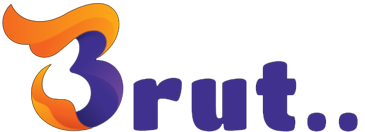Students usually study for the entire academic year in order to do well on the final exam. However, some students fail to complete their desired goals for a variety of reasons, while others learn in a short period of time and achieve high grades. But have you ever questioned if studying and learning are two completely different things? Learning refers to the process of comprehending and acquiring knowledge, whereas studying is the process of interpreting and memorising facts. As a result, students who learn outperform the students who study. Let us highlight effective learning methods in this article.
Create a Study Environment
The environment we live in has an impact on our minds. The study space must be arranged in such a way that it contains all of the essential study materials for the subject. Electronic gadgets, mobile phones, comic books, and other distracting materials must be avoided in the study environment. Creating a dedicated study space, such as a desk in the lecture room or a desk in any room of the house, will help students study and stay focused. By studying in quiet places, one can reduce distractions. Equation charts must always be on the desk while studying the required books. Extra books, such as reference books and olympiad exam books, can also be purchased.
Connect the Questions with the Concepts
There are questions from each and every concept. Questions and concepts are linked, and the
questions mentioned in the books are related to the concepts. Formulas and equations connected to other science-related subjects must be thoroughly explained. The students must be satisfied with the questions and answers on each specific theory. The student’s examples, ideas, and concepts must be in line with the current trend. Students can easily deduce the concept and use it to build their own theories and frame new innovations. The studying must be simple so that the principal concepts are ingrained in the students’ minds.
Practice after Covering a Few Topics
Trying to memorise the entire syllabus the day before the exam is not a good idea. The syllabus must be distributed or divided into smaller portions before learning. After covering a few sections of the syllabus, the student can practise a few questions from the previously completed concepts to determine how many topics they have managed to retain and how much effort is required.
Various Study Tools
Multiple learning tools will help the brain store information about the subject more easily, and one can easily interlink concepts, making the learning process easier. This teaches our brain to gather information in a variety of ways. Reading textbooks, watching videos, attending seminars, and using various reference books are all ways to learn. This allows the brain to capture more information, and by utilising various tools for learning the information, students understand it better.
Solving Papers and Tests
One of the most effective methods of learning is through taking tests and solving previous years’ papers. Rather than restudying the concepts, take a practice test on a topic and recall the information that has been studied. One can test their score by answering a few maths questions from the chapters covered. This indicates to students whether they should continue with the previous syllabus or move on to the next chapter. For competitive exams, such as NSEJS, solving the previous years’ papers would be really fruitful. One will realise where one must pay attention. Practice tests also aid in the rapid review of the chapters.
Multiple Revision
Revision does not only apply the day before the exam. Revision must be done several times to ensure that theories are revised before they are forgotten. Revisiting topics from a fortnight ago aids in better understanding and retention in students’ minds. Revising frequently and repeatedly allows students to easily understand and remember concepts. Regular revisions also save a significant amount of time during exam preparation.
Learning, not studying, leads to higher grades. It is essential to understand the distinction between studying and learning. Both of these methods occur sequentially. To achieve greater goals and score well, one must use effective learning methods. For improved performance in academics and competitive examinations, appropriate learning strategies must be instilled.



